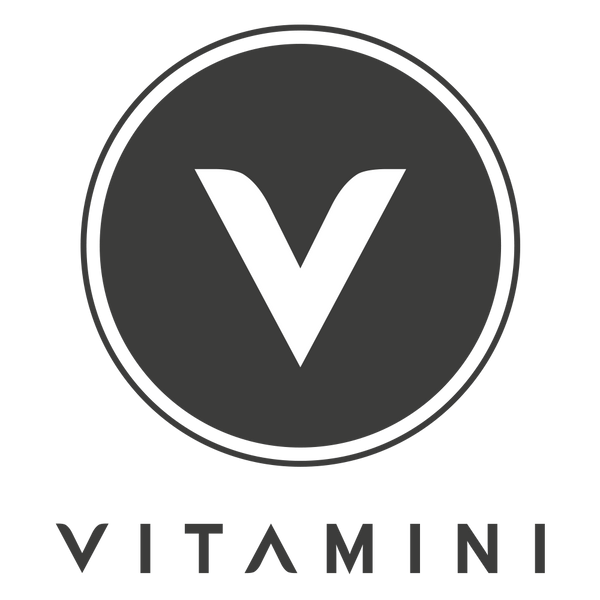
Collagen for our skin
Share
Move over face creams; there’s a new skin saviour in town! In this article, we reveal the secret as to why collagen is THE key to achieving a beautiful glow, as well as how to maximise its benefits.
 Read on to boost your collagen levels as well as your collagen IQ!
Read on to boost your collagen levels as well as your collagen IQ!
THE FACTS
Collagen is the most abundant protein in our bodies. It is found in our bones, muscle and connective tissues, including our skin (Lodish et al. 2000). Here, collagen provides scaffolding that supports skin structure and gives it a youthful appearance (Borumand and Sibilla 2015).
However, our body’s ability to produce collagen naturally declines with age and we begin to break down collagen faster than we can replace it (Varani et al. 2006). Ensuring we top up on collagen as we get older may therefore help reduce physical symptoms associated with ageing, including fine lines and wrinkles (Borumand & Sibilla 2015).
In fact, collagen initially became popular in the 1980s within cosmetic surgery to plump lips and soften fine lines in the skin. In more recent years, edible collagen has taken the place of these expensive injectable fillers.
WANT GLOWING SKIN? GET YOUR COLLAGEN HERE!
THE FINE DETAILS
Collagen supplements provide collagen peptides (shorter amino acid chains) for our body to use to build its own tissue, including collagen (Noguchi & Djerassi 2009). However, be on the lookout when shopping around, as quality and composition varies greatly between products. For example, our Advanced Collagen capsules contain 1050 micrograms of premium type 1 marine collagen and are free from GMOs, artificial colours, preservatives or sweeteners. We are also proud to be British and therefore manufacture our capsules in the UK with 100% recyclable packaging.
It’s beyond exciting that there are efforts within our industry to develop a vegan-friendly replacement for animal-derived collagen (An et al. 2014, Avila Rodríguez et al. 2018). For now, though, most collagen products on the shelves use collagen from animal sources, since it’s a protein naturally and abundantly found in bone and connective tissue (Lodish et al. 2000). Good news is, you can already find supplements that contain ingredients that are known to support collagen synthesis (for example vitamin C), many of which are vegan-friendly.

REDUCE YOUR FINE LINES AND WRINKLES - CLICK HERE!
In fact, we maximise the benefit of vitamin C in supporting collagen production by including it in our Advanced Collagen capsules. These little beauties contain a potent combination of vitamin C, biotin and antioxidant vitamin E alongside collagen and hyaluronic acid. If you’re ready to look and feel great from within without the need for face creams and fillers, check them out at (link to product page).
Lizzy Cole
-----------------
REFERENCES
An, B., Kaplan, D.L. and Brodsky, B., 2014. Engineered recombinant bacterial collagen as an alternative collagen-based biomaterial for tissue engineering. Frontiers in chemistry, 2, p.40.
Avila Rodríguez, M.I., Rodriguez Barroso, L.G. and Sánchez, M.L., 2018. Collagen: A review on its sources and potential cosmetic applications. Journal of Cosmetic Dermatology, 17(1), pp.20-26.
Borumand, M. and Sibilla, S., 2015. Effects of a nutritional supplement containing collagen peptides on skin elasticity, hydration and wrinkles. Journal of Medical Nutrition and Nutraceuticals, 4(1), p.47.
Lodish, H., Berk, A., Zipursky, S.L., Matsudaira, P., Baltimore, D. and Darnell, J., 2000. Molecular cell biology 4th edition. National Center for Biotechnology Information, Bookshelf.
Noguchi, A. and Djerassi, D., 2009. Amino Acids and Peptides: Building Blocks for Skin Proteins. In Nutritional Cosmetics (pp. 287-317). William Andrew Publishing.
Varani, J., Dame, M.K., Rittie, L., Fligiel, S.E., Kang, S., Fisher, G.J. and Voorhees, J.J., 2006. Decreased collagen production in chronologically aged skin: roles of age-dependent alteration in fibroblast function and defective mechanical stimulation. The American journal of pathology, 168(6), pp.1861-1868.

Find out more about Vitamini HERE!
